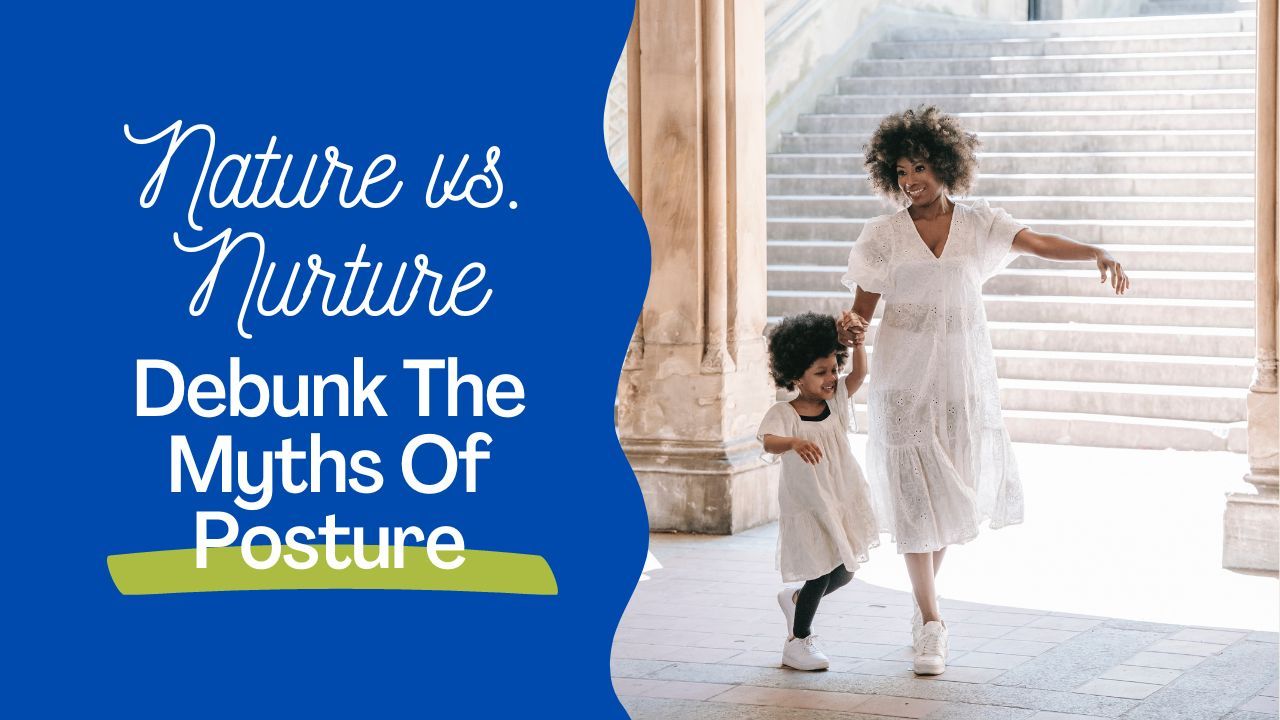Posture: Nature vs. Nurture: Debunking the Myth
Sep 25, 2023
When it comes to discussing posture, it's not uncommon to hear people attribute their slouched shoulders, curved spines, or stiff necks to "bad genes." The belief that poor posture is hereditary has perpetuated over time, leading many to assume that their less-than-ideal posture is beyond their control. However, this notion couldn't be further from the truth.
Genetics and Posture: A Limited Connection
While genetics undeniably play a role in shaping our physical characteristics, they exert minimal influence on our posture. Genetic factors may affect bone structure, joint alignment, or muscle composition to a certain extent, but they don't determine how we hold ourselves on a day-to-day basis. Think of genetics as setting the stage, but it's our daily habits and lifestyle choices that take center stage when it comes to posture.
Posture as a Learned Behavior
Posture is fundamentally a learned behavior. From the moment we learn to stand and walk as toddlers, our bodies adapt to the environments we navigate. Throughout our lives, the way we sit, stand, work, and play all contribute to our posture. It's these ongoing habits and activities that sculpt our posture over time.
Habits that Shape Posture
Consider how common activities and habits impact your posture:
-
Sitting at a Desk: Hours spent hunched over a computer can lead to forward head posture and a rounded upper back.
-
Carrying Heavy Bags: Carrying a heavy backpack or purse on one shoulder can cause postural imbalances.
-
Watching TV: Lounging on the couch for extended periods often leads to a slouched posture.
-
Using Mobile Devices: Constantly looking down at smartphones and tablets contributes to "text neck" and poor neck posture.
-
Lack of Physical Activity: A sedentary lifestyle weakens muscles that support good posture.
-
Ergonomic Workspaces: An ergonomic desk setup encourages better posture during work hours.
Children as Posture Mirrors
Children are especially impressionable when it comes to learning habits, and posture is no exception. They closely observe the adults in their lives, emulating their behaviors, including posture. If children grow up in an environment where poor posture is the norm, they are likely to adopt these habits themselves.
This is why it's crucial for adults to be posture role models. By practicing good posture, we not only benefit our own well-being but also set the stage for healthier habits in the younger generation. Awareness, education, and positive reinforcement can help children develop and maintain healthy posture from a young age.
In conclusion, while genetics may play a minor role in your overall physical makeup, posture is primarily a learned behavior shaped by your daily activities and habits. By recognizing this truth, you can take control of your posture and lead by example for the generations to come. Good posture isn't just about aesthetics; it's about overall health and well-being.

